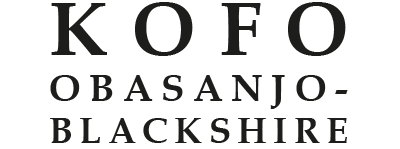The race for Nigeria’s presidential elections continued with the appearance of Peter Obi, Labour Party (LP) candidate in London, UK on Monday, the 16th of January 2023, a little under 6 weeks before the February 25th elections.
In an impassioned speech at Chatham House, Obi highlighted his key priorities for the nation, chief among them security (Protection), which he expressed as his first commitment. He promised to reform the security structure, mobilising the local, state and federal arms of government in a collaborative endeavour to tackle the different sources of insecurity, including the Indigenous People of Biafra (IPOB), a secessionist group calling for the restoration of Biafra, Bokom Haram insurgents and other such elements.
Another area of focus, wealth creation, would address the myriad of challenges facing Nigeria’s estimated 63% multidimensionally poor. This umbrella of liberation from poverty (Prosperity)would encompass debt restructuring, an agrarian revolution, industrialisation, economic diversification, energy crisis and job creation. All this while also tackling corruption and introducing transparency and accountability in government, good governance (Politics) as well as improving the quality of life for Nigerians. The list is not exhaustive, but it is long and indicates the scale of the task that faces the next Nigerian president.
There have been questions about the value of 2023 presidential candidates trooping to Chatham House in the UK, land of our former imperial master- first Asiwaju Bola Tinubu in December 2022, now Peter Obi in January 2023- particularly this close to the elections, when majority of the electorate have made up their mind. Chatham House in London is the policy think tank established by the British Institute of International Affairs and serves as a platform for politicians to showcase their manifesto to a global audience.
As I watched Peter Obi on that stage, I was struck by his apparent passion for a new Nigeria exemplified by policy reform and institutional transformation. He came across as articulate, visionary and committed to restoring Nigeria to a position of strategic importance globally. Capitalising on Nigeria’s youth, he promised to transform the ‘youth bulge’ into a demographic dividend while improving healthcare and education.
To be sure, words can be compelling and I, along with fellow Nigerians, particularly the millions who have been starved of hope for so long with no means of escape or relief, lapped up the convincing words. Peter’s eloquence and performance on that stage, how he was able to think on his feet and juggle multiple questions at once was magnetic. There was however no detail on how these changes would be achieved, delivered or implemented. Granted, there was insufficient time to delve into details.
What I found persuasive were the examples of his track record. A google search generated evidence to authenticate and substantiate his performance credentials as Anambra state governor and as a businessman. Peter seems to me the president that Nigeria needs now. I hope one day to be proved prescient; but in the absence of crystal ball, the proof of the pudding will be in the eating. Let’s hope Peter Obi lives up to his promises and the people’s expectations.

